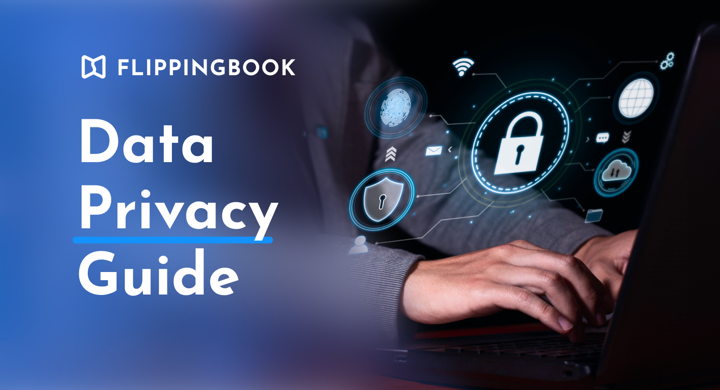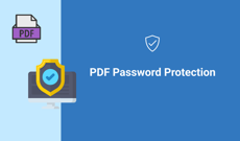How important is data privacy? According to the Council of Europe, it’s important enough to dedicate an entire annual event to it. Established in 2007 to raise awareness and promote the best data protection practices, Data Privacy Day is currently celebrated on January 28 in the USA, Canada, and 50 other countries.
As a business, you might view this data privacy craze as a hindrance rather than an opportunity to your advantage. It's yet another rule to comply with, another document to write, and more work on top of everything else you need to do.
If that’s what you think, let us challenge you! In this article, we’ll discuss what data privacy is, why it is important, and what perks you get when you become more transparent and respectful of your users’ privacy and strengthen data protection across your organization.
Key Takeaways
⭐ Data privacy and data security aren’t exactly the same thing, but they go hand in hand. Data privacy expresses the concept of controlling access to personal information, while data security (or protection) discusses specific steps to gaining that control.
⭐ The misuse of private data by corporations has turned data privacy into a growing global concern, prompting the introduction of various regulations in almost every country.
⭐ Investing in better data privacy and data security practices as a business offers a number of benefits. Better client relationships, competitive edge, and enhanced brand reputation are among them.
⭐ Good data protection practices take time to implement, but maintaining them is fairly easy. Just remember to be transparent about what data you collect, don’t collect the data you don’t need, and conduct regular audits to make sure everyone adheres to the same principles, including your partners and vendors.
⭐ It’s important to keep personal data privacy in mind. Enjoy our tips on protecting your devices, securing online shopping experiences, and general safety online.
What Is Data Privacy?
This term gets thrown around a lot but often people do not fully comprehend its meaning or confuse it with data protection—we’ll touch upon this issue below.
Put simply, data privacy refers to an individual’s ability to control personal information—such as health, location, behavior (e.g., purchase history and browsing habits), education, profession, and communications—that can identify them and potentially be used to harm or influence them.
Difference Between Data Protection and Privacy
While both terms are used interchangeably in everyday conversations, data privacy mainly refers to the ethical side of the problem, how transparent organizations collecting users’ data are, and whether they comply with American and European regulations.
Data protection is used to discuss specific steps organizations take to ensure the data they collect won’t fall into the wrong hands so that end users feel safe sharing personal information with a third party. These steps include incorporating stricter internal policies and using encryption and access control.
Why Data Privacy Is Important
Data has always been any business’ bread and butter. If you get insights into what your audience wants, you can better meet their needs, saving yourself time and money while driving your company’s growth.
However, the easier it became to collect and analyze data, the more the public became concerned about the potential harm this could cause to ordinary people, organizations, and even entire countries. In fact, two-thirds of global consumers believe that tech companies hold too much control over their data.
Unfortunately, this concern has solid ground. For instance, in one high-profile case, Target’s prediction technologies used to tailor ads revealed a teen’s pregnancy to her family even before she did, causing emotional harm to the girl and a large-scale scandal in the public space.
In 2018, Strava, a fitness-tracking app, published a global heatmap showing the activity of its users. The map revealed sensitive locations like military bases and secret installations because soldiers using the app unknowingly shared their workout data.
Not to mention the numerous data breaches at global companies which increased risks of identity theft and financial fraud for hundreds of thousands.
Keeping all this in mind, it’s obvious why people worry about companies collecting and storing their personal data and want more control over what they share.
How Data Privacy Compliance Benefits Your Business
The introduction of the GDPR (General Data Protection Regulation) in Europe and similar federal and state-level regulations in the US brought a lot of headaches to businesses struggling to comply. We get it: time, costs, and paperwork associated with this task can make you start questioning your life choices.
However, it’s not all doom and gloom. Apart from avoiding fines for not complying with the laws, you actually get more than you give when providing a clear data privacy policy. While the ROI might not be directly measurable, the benefits are undeniable.
🚀 Fostering better client relationships
The misuse, mishandling, or unethical collection of personal data by companies undermined consumers’ trust and turned data privacy into an extremely sensitive topic.
On the flip side, demonstrating respect for clients' privacy and clearly explaining what data you collect and why allows you to proactively address concerns and build stronger relationships. After all, 64% of consumers say companies that provide clear information about their privacy policies enhance their trust, and 40% claim that they would willingly share their data if it was clear how it was used.
🚀 Enhancing brand reputation
If your company is upfront about its data privacy and data security practices, it is more likely to earn a positive public image. In case a data breach happens, the press coverage won’t be that harsh, and affected consumers will be more understanding.
🚀 Gaining a competitive edge
According to the McKinsey report, 71% of consumers would stop doing business with a company if it mishandled their sensitive data. Scary as it may sound, this fact opens up opportunities for outdoing your less-caring opponents without costly marketing campaigns and equally costly feature development.
🚀 Future-proofing your company
A transparent policy helps businesses stay adaptable to new or evolving privacy regulations. It’s always better to tweak your policy or make a small change to existing processes than build a new system from the ground up.
Additionally, even if the laws stay the same, consumer expectations about the level of data protection and data privacy practices change constantly—it’s a good idea to meet them sooner rather than later.
🚀 Aligning your team with good data practices
Introducing a transparent privacy policy goes both ways. Clients are more likely to trust you with their data, while your team gets a clear understanding of how the data is collected, used, and stored, ensuring it is well-protected. It’s easy to do when you have an efficient internal communication strategy, and people are well-informed about all the processes within the company.
Data Protection Best Practices
Creating clear, concise data privacy policy is a great first step to transforming the way you handle client data. However, it’s not the only thing you should do to gain your customers’ trust. Here’s the list of the most effective ways to stay on top of your data and comply with the common US and European regulations.
🔒 Transparency: We’ve mentioned this on multiple occasions, but let’s reiterate: you should be open about your practices and provide clear and truthful information about what data is collected, what it’s used for, and how it is stored.
Also, make sure your privacy policy is accessible, meaning it’s written in plain language, easy to find, and regularly updated.
🔒 Data Minimization: It’s pointless to collect all the data you can lay your hands on even if it looks valuable. Let’s say, you ask your client’s age and gender. Is it important to provide better services and tailored offers? Then go for it. It really doesn’t matter for your industry? Then remove these questions from the registration form.
🔒 Enhanced Security: Encryption, firewalls, and access controls, combined with regular security audits, ensure the data you collect remains safe and secure. It’s also necessary to educate your employees about cybersecurity practices and the importance of protecting personal data.
🔒 Accountability: When everyone is responsible, no one is responsible. That’s why it is so important to appoint a Data Protection Officer who’ll be in charge of overseeing all the data protection practices. This person can also be responsible for creating an action plan for detecting, reporting, and mitigating data breaches.
🔒 Consent and Control: Always clearly ask before collecting and processing your clients’ data, especially if it is sensitive and can be used to identify the person. The more personal data you collect, the greater the control you should offer users to manage and delete it.
🔒 Third-Party Management: To make your security infrastructure truly robust, your partners and vendors should adhere to the same strict privacy practices you do. To ensure that, include the data privacy clauses in agreements and conduct audits regularly.
🔒 Legal Compliance: We’ve stated that there are many reasons to improve your data privacy practices beyond complying with regulatory requirements. But it never hurts to stay out of financial trouble as well. Review the applicable laws and regulations such as GDPR, CCPA, and HIPAA often and be proactive in adapting to the latest changes.
🔒 Ethical Use of Data: We hope you read this article with no intention to use the collected user data for some nefarious purposes. Yet it’s still important to remember that the personal data people share with you shouldn’t be used to exploit or influence them in an unfair way.
🔒 User Empowerment: Some companies do allow clients to manage and remove their personal data but make the process so complicated and tedious that it’s easier to give up than to actually manage anything. Don’t be like that: it’s not fooling anything, just making people angry.
Instead, make the preferences management process easy and provide clear explanations about how to do it. Your reputation is more precious than a few users wishing to erase their digital footprint.
How FlippingBook Protects Its Clients’ Data
As a digital publishing platform that also allows users to store their documents online, we at FlippingBook take data privacy and data security very seriously. Watch our video to learn how we help people protect their documents from unauthorized access, and read on to learn all the details.
Secure document hosting
When you create a digital document with us, it becomes available as a link that no one can guess until you choose to share it with them. Like this one:
Protect Your Content with FlippingBook
Hiding documents from search engines
By default, all the documents are hidden from search engines so no one can google them. PDFs, on the other hand, often end up in public access even if they are locked behind a paywall or stored in a secure website area.
Limiting sharing options
You can disable share, print, and download options for your document to prevent unauthorized distribution. Here's an example:
Government Technology Magazine
Restricting access to specific domains
When sharing sensitive documents, you can also limit access to them or put them up on your Intranet as protected embeds. These embeds will stop working as direct links and won’t open anywhere outside of the domain you specified.
Enabling restricted document access
For even tighter security, you can make your content accessible only to users authorized via email, a specific email domain, or SSO (Single Sign-On). Thus, you'll have a complete control over who can view your content.
As for the data we collect, we do our best to explain what and how we track and store in our privacy policy and provide the latest information about data security practices on the website.
Bonus: Tips for Improving Your Data Privacy
Now that we’ve talked about protecting data from a company standpoint, let’s see how you as an individual can adopt better data privacy practices. We’re all humans after all, aren’t we? (Unless you are an AI. Then, skip the following section.)
#1 Back up your data regularly
Luckily, these days it’s much easier to retrieve lost data when your computer gets stolen or damaged, but it never hurts to stay on the safe side and create regular backups on physical devices in addition to online ones.
#2 Use strong, unique passwords
Can you guess the most overused password both for personal and corporate accounts? Bingo, it’s 123456. Avoid making this mistake. Use strong combinations of letters, numbers, and symbols, and avoid reusing passwords across accounts. For extra security, consider a password manager to generate and store your passwords. We have more tips for password protection if you’re interested.
#3 Enable multi-factor authentication (MFA)
Better still, consider using multi-factor or two-step authentication where possible. This type of authentication provides an additional level of security by requiring an extra step such as code sent to your phone to log in.
#4 Be mindful of what you share online
Oversharing personal info on social media is so common in today’s day and age that no one gives it much thought. No one except for hackers. They can use such things as your relatives’ names and dates of birth to crack your passwords.
Sharing vacation plans is also risky, as it could lead to a break-in while you're away.
#5 Check and configure your app privacy settings
Sometimes, we don’t use our data privacy privileges even if they are already there. If you haven’t done so yet, this is your call to go over the apps on your mobile devices and consciously choose which data you want to share.
#6 Enable remote device-wiping
In a sad case your device gets stolen, make sure you have the means to delete all the sensitive data from it remotely. This way, at least, you won’t get robbed or scammed as well.
#7 Secure your devices
Make sure to keep up with the latest app and OS updates, and keep your anti-virus software active. Use biometric locks (like fingertips and facial recognition) where possible. When working from a coffee shop or commuting, consider using a VPN and your own personal hotspot rather than public Wi-FI—especially, for sensitive activities like online banking, shopping, or accessing corporate accounts.
#8 Use secure payment methods
Online shopping is a part of our everyday life and since it’s so common, it’s easy to become lenient with some security practices. However, a single purchase on a perfectly legitimate even if a small website can lead to your card details being exposed and money stolen. Here’s what you can do to avoid it:
- Shop in familiar stores with good reputations.
- Use single-use debit cards—many banks can issue one right in your banking app.
- You can also use digital wallets like ApplePay and GooglePay, or payment services like Paypal for an extra level of protection.
We hope this article answers your questions about data privacy, why it’s important, and how to install good data protection practices both at the corporate and personal levels. We’re still adapting to living in the digital-first world, so let’s combine our efforts to make it a safe, ethical space where we can thrive.





